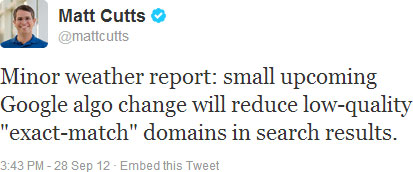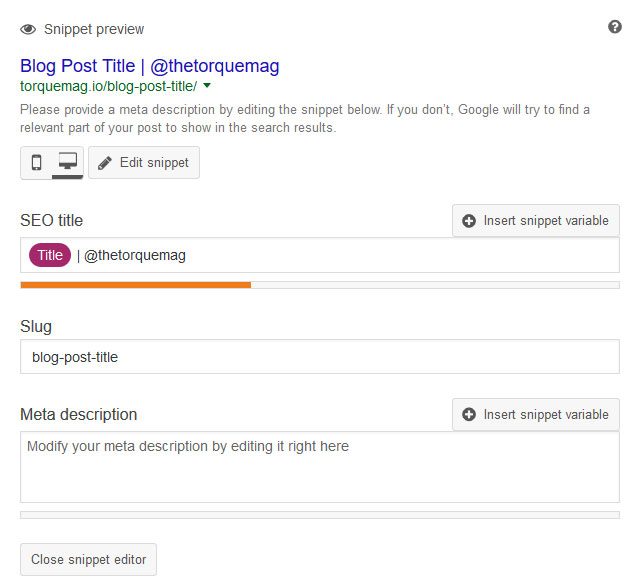The field of search engine optimization has gone through so many changes and keeps evolving so fast that it’s hard to keep track. As a consequence, things that used to net you a good chance of landing on the first page of Google no longer do so. However, you might not even be aware that what you are doing is actually hurting your site more than helping.
To avoid this kind of scenario, in this post we will look at a number of SEO tactics that no longer work but that people still engage in. These are outdated SEO techniques that are either completely ineffective or will actually cause search engines to punish you. Not only will you learn what they are but also what you should be doing instead.
Let’s get started right away.
Ineffective and Outdated SEO Tactics You Should Stay Away From
Seriously, stop using the stuff below. It no longer works.
1. Focusing on Keywords Over User Engagement
Keywords are one of the most important parts of SEO. They show search engines what your content is about so they can rank you for the right search terms. It’s why there is keyword research and on-page SEO.
Because of their importance, it makes sense that some people try to stick as many keywords in the title of their page or meta description as possible. After all, it means you target several keywords at the same time, right?
While that is solid thinking on the surface, you know what else this kind of thing does? Make your site look hella sketchy. No person who owns an email address and has any experience with spam messages will click on this. And that is a big problem.
The reason for that is that how users interact with your site is getting increasingly important in SEO. Google is making a big push toward tracking user engagement and employing that information for ranking pages. That’s pretty much what Google RankBrain is all about that, which has become the third most important ranking factor.
As a consequence, even if by some miracle you end up on the first page of Google, your lack of user engagement will erode your standing over time. So, this definitely is one of the SEO tactics that no longer works.
A Better Approach
Instead of playing the keyword game, a better idea is to get with the time and shift towards catering to users. How so? By focusing on attracting clicks by people, not pleasing search spiders.
That means, for example, looking into copywriting and how to increase click-through rate. When you do, instead of the above, you would do something like this:
Much more user-friendly, right? That’s because it is a message for potential visitors, not bots (unless bots like cheesy puns). Once you get them to click and do whatever you can to keep them on your site, Google will notice and reward you for it.
2. Using Exact-Match Domains (EMD)
Exact-match domains are when you include an exact key phrase you are trying to target within your domain name. This can be something like:
- bestdeepdishpizzamanhattan.com
- cheaphealthinsuranceforfamilies.co.uk
- poolsforsmalldogs.net
This used to be a popular technique to rise quickly in the SERPs as it allowed you to rank more easily than with a normal, branded domain. It was also a great way to create a network of microsites targeting exact phrases.
However, the times when this worked are long gone. In fact, in 2012 Google announced an algorithm update targeting exactly those types of websites and demoting them in the search rankings.
That is not to say that exact-match domains don’t work at all anymore. However, just as going all keyword crazy in your page titles, with this practice the risk to be considered spammy and untrustworthy is much higher. That, in turn, means less people will click on your site and visit it. We have already settled why that is problematic for your search rankings.
Yet, even if that wasn’t the case, using this outdated SEO technique to try and rank several small sites for exact key phrases is still not a good idea. It puts you in a position where you need to grow more than one site at once and divide not only your effort but also the links you will acquire.
A Better Approach
Instead of the above, why not to put all your work into a single, non-exact-match domain? This allows you to focus your resources in one place and earn all links for one site instead of spreading them out across multiple websites. This gives you more authority, which will benefit your content as a whole.
Also, it makes it much easier to create a recognizable brand that doesn’t sound like someone who would send emails signed by Nigerian princes. That way, you will have a better time building trust instead of sending your customers to your competitors.
3. Including Meta Keywords in Your Content
Like title tags and meta descriptions, meta keywords are pieces of information you can attach to web content. While visitors won’t see them, they will be picked up by search engines and are supposed to provide them with additional information about the content of your page.
Meta keywords are pretty old, they have been around since 1995 and used to have a real impact on search rankings. Unfortunately, they became problematic when people started abusing them in the hopes of ranking for more search phrases.
This is why we can’t have nice things.
As a consequence, no serious search engine is taking meta keywords into account in their ranking algorithms anymore. While you can still fill them in, doing so will do nothing for your standings in the search results.
A Better Approach
Instead of investing in obsolete data, you would do better concentrating on things that actually matter. Two of those are the title tag and meta description, which you can fill in with SEO plugins like Yoast SEO or All-in-one SEO Pack.
They have a lot of influence on click-through rates, which we already talked about above.
In addition to that, you can use WordPress’ built-in taxonomies like categories and tags. These help organize your site both for visitors and search engines. To the latter, they are a good indication for what your site is about, especially if they appear in the site URL. You can configure this in WordPress under Settings > Permalinks.
All of this is information that search engines will actually take into account when ranking your site.
4. Engaging in Comment Spamming
This is a personal pet peeve of mine. As a blogger and website owner, I have to deal with dozens of comments every day. Unfortunately, the majority are spam. Navigating through this muck of poorly worded and irrelevant feedback is really no joy at all.
In case you don’t know what spam comments are, they are comments that are pretty much devoid of valuable information, contribute nothing to the discussion and whose only aim is to establish a link to the commenter’s own site.
Once upon a time, this was actually a legitimate way to create backlinks to your site. However, today it has become one of those SEO tactics that no longer work for several reasons.
First of all, there are lots of ways to prevent spam comments, especially in the form of WordPress plugins. Any professional website will use those and manual measures to make sure useless comments never see the light of day. So, if you are spamming, all you do is increase their workload.
In addition, even if your comments make it through, any WordPress theme worth their salt by now automatically adds the rel="nofollow" attribute to links included within. As a consequence, search engines cordially ignore them as ranking signals. Consequently, they don’t achieve anything.
The only hope you have is that some unwitting human visitor will click through to your site. However, with the sensitivity that most people have towards spam, this is quite unlikely. Plus, did I mention that it’s really annoying?
A Better Approach
Instead of engaging in what is arguably the blight of the Internet, why not create high-quality, unique and interesting content people actually want to link to? If you create value for others and they like your stuff, they might be happy to shoot you a backlink without you even having to do a thing. Combined with targeted link-building efforts, this is a great way to improve your rankings.
If you do want to use comments to increase traffic to your site, there are better ways to do so. For one, seek out relevant blogs in your industry and make sure to leave relevant and helpful contributions under their posts. If you do that, it’s more likely that other readers will click on the link in your profile to check out your site. Free traffic!
In addition to that, website owners might do the same and consider linking to you in the future. If you have produced something that is worth linking to that is.
5. Using Link and Article Directories
Link directories used to function as a way to discover content. They would categorize websites so you could find stuff you are interested in. As you can imagine, they also became very popular as a way to increase links to websites for better search rankings.
It’s the same story for article directories. These were set up to allow you to share valuable information with an audience and earn links and traffic in the process. However, they quickly turned into repositories for spun articles that didn’t provide a lot of value.
For that reason, today search engines widely disregard both types. If you make them part of your link building scheme, this can actually get you penalized.
A Better Approach
The solution for this outdated form of SEO is pretty much the same as for comment spamming: create and publish content that others actually want to link to. That way, you do your audience and yourself a favor.
Aside from that, in some industries, you can still find some high-quality, curated directories. If that is the case for yours, it can still make sense to try and get yourself featured in there.
Are There More SEO Tactics That No Longer Work?
With the tempo that search engine optimization is changing, it’s not always easy to keep up with the latest developments. This can become a problem if it means you continue using SEO tactics that no longer work or, even worse, will hurt your site. For that reason, it’s important for website owners to keep their head in the game.
Above, we have listed a number of outdated SEO techniques you should stay away from. Let’s summarize them one more time:
- Focusing on keywords over user engagement
- Going for exact-match domains (EMD)
- Using meta keywords
- Engaging in comment spamming
- Building links from directories
By now, the most important SEO technique is this: Create a user-friendly website with content that creates value for your visitors. If you can do this, search engines will take notice and reward you for your efforts. Of course, there is a lot that goes into this but in essence, that’s what it comes down to.
Hopefully, this post has been either a wake-up call for you to stop doing what you are doing or, preferably, a confirmation that your SEO efforts are on the right track. Either way, use the information to make sure you are not accidentally hurting your site’s ranking.
What other SEO tactics that no longer work do you still see people engaging in? Let us know in the comments section below!






6 Comments
Join the conversation